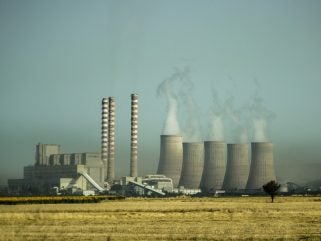
The US and Bulgaria have signed an intergovernmental agreement to cooperate on the development of Bulgaria’s civil nuclear programme, including plans for new units at the Kozloduy nuclear power plant.
US Assistant Secretary for Energy for International Affairs Andrew Light and Bulgarian Minister for Energy Rumen Radev signed the agreement, which builds on a 2020 memorandum of understanding.
The two countries will work to support plans to design, construct and commission two new units at Kozloduy and “explore collaboration on research and training programmes and developing Bulgaria’s nuclear supply chain resilience”.
Light said: “This agreement will play a vital role in promoting energy security and decarbonisation for Bulgaria and the region. Together, we will support Bulgaria’s efforts to strengthen all aspects of its civil nuclear power programme, including nuclear safety and security, nuclear fuel supply and nuclear project development.”
In October last year, the Bulgarian Government started constructing unit 7 of the Kozloduy nuclear power plant using Westinghouse technology that had never before been operational in Europe. Westinghouse hopes to access the wider European market through the Bulgarian project.
Last week, five companies submitted applications detailing their interest in building the two Westinghouse AP1000 reactors. Russian Federation candidates were excluded from the process.
The first four units of the Kozloduy plant were Soviet VVER-440 model reactors constructed in 1966. As part of EU accession negotiations, Bulgaria committed to closing the four units by the end of 2006 after the European Commission labelled them non-upgradable.
Bulgaria’s Prime Minister, Nikolay Denkov, highlighted that the 2.3GW capacity of the two new units would exceed the 1.76GW capacity of the closed four units.
The target date for the completion of the first new unit is 2033, with the second unit following “two or three years after the first one”, according to the Bulgarian Government.
Radev said of the project: “The financial framework for the construction of units 7 and 8 at Kozloduy should not exceed 14 billion [he did not specify if this is dollars or euros] … the idea is to implement the project entirely on public funds with up to 25–30% self-financing. The rest is to be loan-financed for part of which State guarantees will be furnished.”



